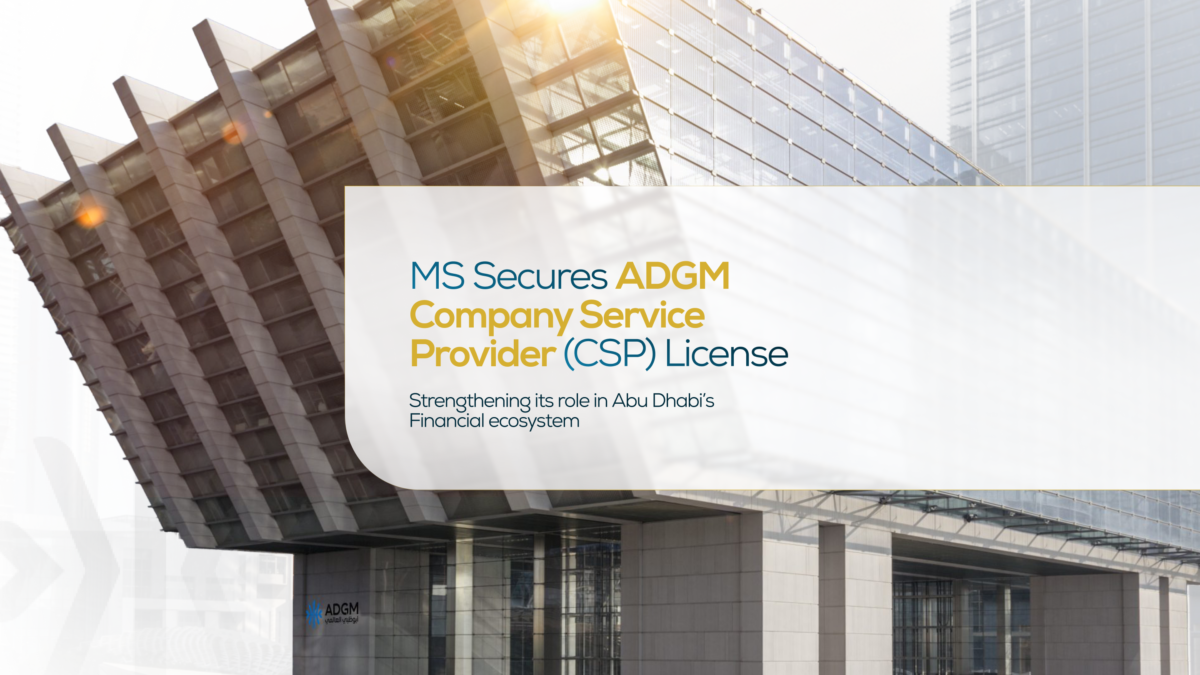The Essentials
For UHNWIs and HNWIs with UAE-centric or globally diversified wealth, ADGM Foundation setup offers stronger asset protection than traditional trusts. Their status as a separate legal entity, enhanced founder-led governance, perpetual existence, and alignment with a robust common-law framework provide superior legal certainty, bankability, and succession control.
When legacy matters, structure is everything. For UHNWIs and HNWIs, ADGM Foundation setup offer a smarter, stronger way to protect and grow wealth combining legal certainty, control, and cross-border credibility in one powerful vehicle.
Let’s explore why ADGM Foundations consistently outperform traditional trusts and what makes them the preferred choice for UHNW and HNW families in the UAE.
Why ADGM Foundation Setup Are the Modern Choice for Wealth Structuring?
1. Legal Personality Creates Stronger Asset Ring-Fencing
The most decisive advantage of an ADGM Foundation lies in its legal personality.
An ADGM Foundation is an independent legal entity that can own assets, enter into contracts, and sue or be sued in its own name. This distinction is critical. Assets transferred to the foundation cease to be part of the founder’s personal estate and are no longer held through an intermediary relationship.
A trust, by contrast, is not a legal entity. It is a legal arrangement where assets are held by trustees for beneficiaries. Ownership technically rests with the trustees, which introduces layers of dependency and potential exposure including trustee insolvency risk, disputes, or jurisdictional complications.
For UHNW and HNW families seeking robust asset insulation, direct ownership by a legally autonomous vehicle provides a cleaner and more defensible protection structure.
2. Greater Founder Control Without Compromising Asset Protection
Traditional trusts require founders (settlors) to relinquish significant control to trustees. While fiduciary duties exist, trustees ultimately interpret and execute the trust deed which can diverge from the founder’s original intent over time, particularly across generations.
ADGM Foundation formation offer a more balanced model.
Founders can design governance structures that clearly define:
- How the Foundation Council is appointed and replaced
- How decisions are made and supervised
- How distributions and succession are handled
The optional appointment of a Guardian adds an additional layer of oversight without shifting control away from the foundation itself.
This governance-led control model resonates strongly with UHNWIs and HNWIs who want continuity of vision and influence, rather than trustee-centric discretion.
3. Perpetual Existence Supports Multigenerational Planning
Many trust structures are subject to time limits, rule-against-perpetuity concerns, or eventual restructuring events depending on the governing law.
ADGM Foundations can exist in perpetuity.
This makes them particularly effective for:
- Long-term family wealth preservation
- Dynasty planning
- Holding operating businesses or investment structures across generations
Perpetual existence ensures that the asset-holding vehicle itself does not become a future risk point requiring restructuring or re-settlement – an important consideration for complex UHNW estates.
4. Stronger Cross-Border Recognition and Bankability
In today’s regulatory environment, banks, custodians, and counterparties favor transparent, well-regulated legal entities over opaque or misunderstood arrangements.
ADGM Foundation setup benefits from:
- Being established in a globally recognised international financial centre
- Operating under English common law principles
- Having clear governance, ownership, and control frameworks
As a result, ADGM Foundation setup are generally easier to bank, finance, and integrate into international investment structures, which is a material advantage for globally mobile wealth.
5. Cleaner Liability Isolation
Once assets are transferred into an ADGM Foundation, they are owned by the foundation, not by the founder, not by council members, and not by beneficiaries.
This creates a strong legal separation between:
- Personal liabilities of the founder
- Claims against beneficiaries
- Risks associated with operating or investment entities beneath the foundation
In trust structures, legal ownership by trustees can blur these lines, especially in cross-border disputes or insolvency scenarios. Foundations, by design, offer clearer asset segregation, which strengthens asset protection outcomes.
6. Succession Certainty and Reduced Inheritance Risk
ADGM Foundation setup allows succession rules to be embedded directly into the charter and by-laws. This provides clarity on:
- Who benefits
- When distributions occur
- How decision-making evolves over time
This structural certainty is particularly valuable for families exposed to:
- Forced heirship regimes
- Multi-jurisdictional inheritance laws
- Complex family dynamics
While trusts can also address succession planning, their effectiveness depends heavily on trustee interpretation and judicial treatment in relevant jurisdictions. Foundations provide a more institutionalized and predictable succession framework.
7. Privacy With Regulatory Credibility
Global transparency initiatives have significantly reduced the confidentiality advantages traditionally associated with trusts.
ADGM Foundation setup strike a more sustainable balance:
- Founders and beneficiaries are not publicly listed
- The structure operates within a FATF-aligned, regulated ecosystem
- Transparency exists where required, without unnecessary public exposure
For UHNWIs and HNWIs, this combination of discretion and credibility is increasingly essential particularly when interacting with banks, regulators, and international counterparties.
How MS Can Help with ADGM Foundation Setup?
MS supports UHNWIs and HNWIs through the end-to-end establishment of ADGM Foundation setup, combining regulatory precision with strategic structuring. From advising on the optimal foundation design and drafting the Charter and By-laws, to managing ADGM registration, governance frameworks, and ongoing compliance, MS ensures the foundation is built to protect assets, preserve control, and support long-term succession objectives. Our multidisciplinary expertise across corporate, tax, and regulatory advisory enables clients to implement an ADGM Foundation that is not only compliant, but purpose-built for sophisticated, cross-border wealth planning.









